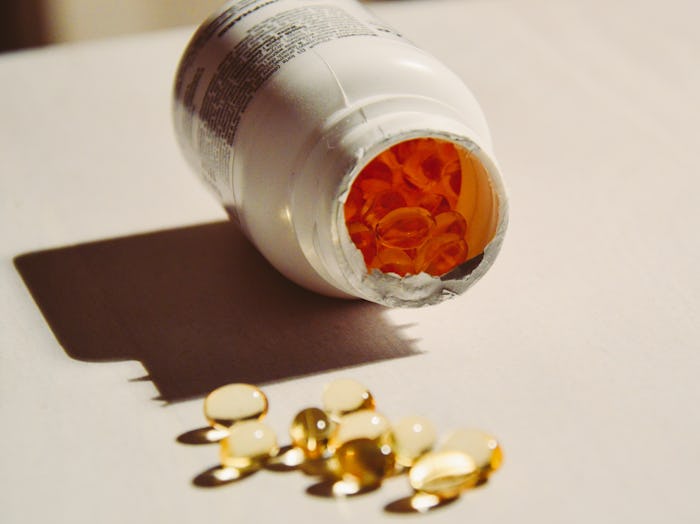When you're an expecting mother, you will do anything to ensure you're healthy, like taking prenatal vitamins to guarantee that you're getting all of the nutrients that a fetus needs to grow and develop. But if you're worried you aren't getting an adequate dose from your store-bought product, don't be. New research has found that there is an important reason you should stick to over-the-counter prenatal vitamins over the more expensive, harder to obtain, prescription prenatal vitamins.
Prenatal vitamins are recommended by doctors to make sure that expecting mothers are getting the right amount of nutrients needed for their health that they might not be able to get through their diets. But those women don't need to spend an arm and a leg to get the nutrients they deserve.
The new study, published in the Journal of the Academy of Nutrition and Dietetics, found that when it comes to prescription prenatal vitamins and over-the-counter prenatal vitamins, it might be best to take over-the-counter prenatal vitamins; The study was conducted to compare and determine the differences between the two kinds of prenatal vitamins (testing 82 prescription and 132 nonprescription products), and the results were kind of surprising. Researchers found that the prescription products contained significantly fewer vitamins than their OTC counterparts and the differences are enough that any woman should take notice.
While prescription prenatal vitamins did not have as many minerals compared to nonprescription vitamins, researchers found that the prescription vitamins did contain higher amounts of folic acid. According to Mayo Clinic, folic acid helps prevent neural tube defects, like abnormalities of the brain and spinal cord. But aside from folic acid, researchers found that over-the-counter prenatal vitamins contained higher levels of vitamin A, vitamin D, iodine, and calcium than the prescription bottles. Amounts of iron, zinc, and DHA were similar in both kinds of prenatal vitamins. The study's lead author, Dr. Leila Saldanha, of the Office of Dietary Supplements at the National Institutes of Health, told Reuters:
Generally, most [prenatal vitamins] provide the amounts of nutrients that are recommended during pregnancy. Overall, however, prescription prenatals are less potent than nonprescription prenatals, except for folic acid.
The condensed version: Just because something has to be obtained by a prescription doesn't mean it is necessarily better. This could save expecting mothers a lot of money, especially since then Senate's new health care bill could make the cost of prescription drugs incredibly high, even for people with insurance. Over-the-counter prenatal vitamins can cost as little as $10 a bottle and can be purchased from just about anywhere you can buy supplements.
Regardless, when it comes to taking prenatal vitamins it's best to listen to your doctor and their recommendations. Obviously, prescription prenatal vitamins should be used if your doctor insists on it for any reason (they didn't got to medical school for nothing, of course). Still, if you're concerned about the quality of over-the-counter prenatal vitamins, rest assured they're a great place to start.
